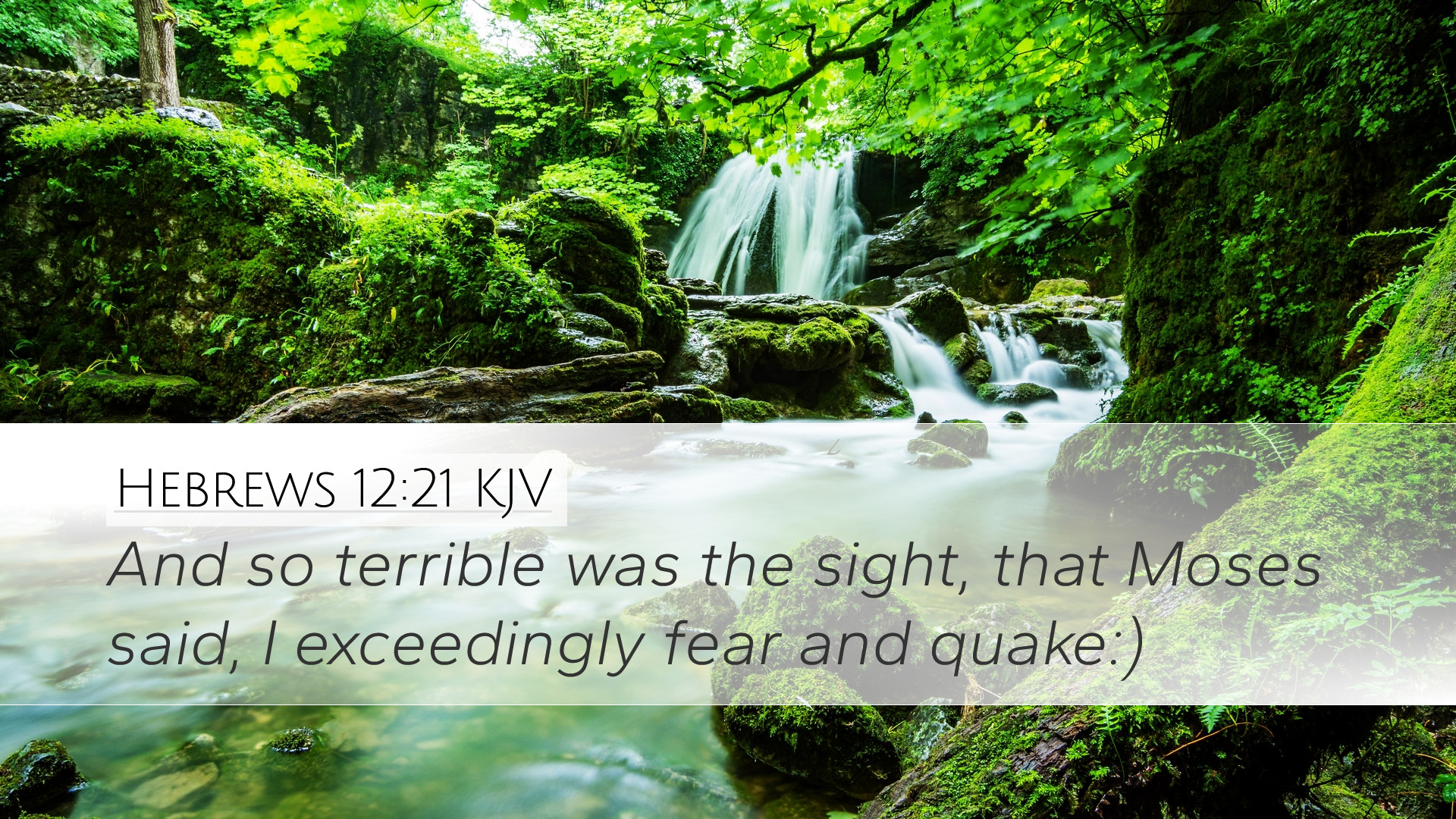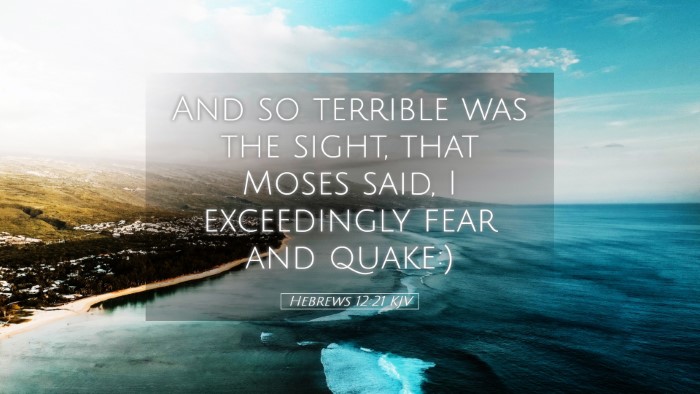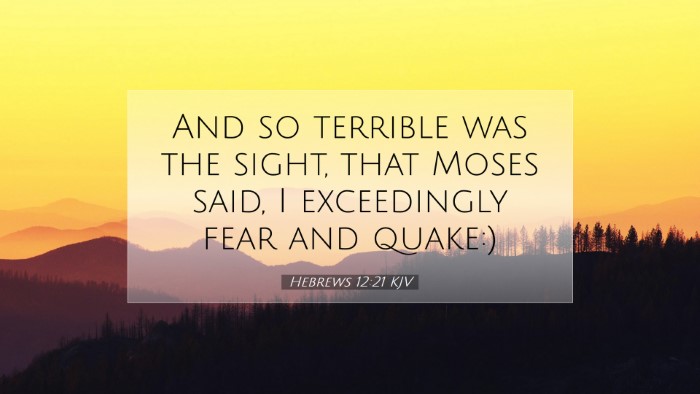Hebrews 12:21 Commentary
Verse: Hebrews 12:21 - "And so terrible was the sight, that Moses said, I exceedingly fear and quake."
Introduction
This verse references the authoritative fear that accompanied the giving of the Law at Mount Sinai. It serves as a sobering reminder of God's holiness and the appropriate response of man. The weight of this moment is echoed through the sentiments expressed by the Apostle Paul in this epistle, emphasizing the awe and reverence due to God.
Insights from Matthew Henry
Matthew Henry elaborates on the overwhelming nature of God's presence during the giving of the Law. He states, "The majesty of God was surrounded by fire and darkness, manifesting His holiness and justice." Henry interprets Moses's fear not just as a personal response but as a universal reaction to the divine encounter. This fear signifies a recognition of God’s greatness and the genuine humility that should accompany human interaction with the divine.
Moreover, Henry notes that this fear is a significant aspect of true worship, suggesting that "The fear of the Lord is the beginning of wisdom." Such reverence is critical for understanding God’s holiness and our own position in light of it.
Insights from Albert Barnes
Albert Barnes emphasizes the significance of the term terrible in this verse, interpreting it as a reflection of the awe-inspiring nature of God's revelation at Sinai. Barnes argues that the nature of the sight that Moses experienced was so fearsome that it caused him to tremble.
He observes, "This fear was not fear of punishment but a fear that acknowledged the overwhelming nature of God's presence." Such fear serves a purpose; it compels the believer to recognize the holiness of God, prompting a response of both reverence and gratitude.
Barnes also points out that this trembling enables believers to appreciate the grace conveyed through Jesus Christ, contrasting between the terrifying aspect of the Law and the liberating nature of the Gospel. He concludes that while the initial revelation brought fear, the final revelation through Christ brings assurance and comfort.
Insights from Adam Clarke
Adam Clarke offers a detailed analysis of Moses's fear, framing it within the broader context of Sinai's events. He states, "Moses, as the mediator of the old covenant, felt the weight of God's presence, realizing the seriousness of the obligations placed upon the people."
Clarke suggests that Moses's fear is emblematic of the need for proper mediation between God and man. He argues that "This teaches us about the necessity of approaching God with appropriate reverence." Clarke connects this fear as a precursor to understanding the grace found in Christ’s mediation in the new covenant.
Furthermore, Clarke emphasizes an important theological point—though fear is essential, it must ultimately lead to worship and honor, reflecting the shifting relationship believers have with God through Christ.
Theological Reflection
In synthesizing these insights, we can draw a deeper understanding of Hebrews 12:21. The fear demonstrated by Moses serves a dual purpose. Firstly, it shows the authentic nature of divine encounters, marking a contrast between God's holiness and human frailty.
Secondly, it acts as a precursor to the radical transformation that Jesus brings. Paul’s message encourages believers to approach God not with the terror associated with the Law, but with the boldness inherent in Christ's sacrifice.
Key Themes
- Holiness of God: God's holiness requires a proper response from humanity; this includes a mix of reverence and terror.
- Mediatorial Role: Moses's fear underscores the need for mediation between God and man, fulfilled in Christ.
- Fear as Worship: The fear of God should lead believers toward worship rather than away, highlighting a relationship built on respect and love.
- Contrasting Covenants: The verse contrasts the old covenant at Sinai with the new covenant in Christ, emphasizing the transition from fear of punishment to assurance of grace.
Conclusion
Hebrews 12:21 powerfully encapsulates the tension between divine awe and intimate access through Christ. Embracing this balance is essential for believers as they navigate their relationship with a holy God. As we reflect on this verse, may we be reminded that while God’s presence is fearsome, it is also immensely gracious, inviting us into a deeper fellowship despite our unworthiness.


